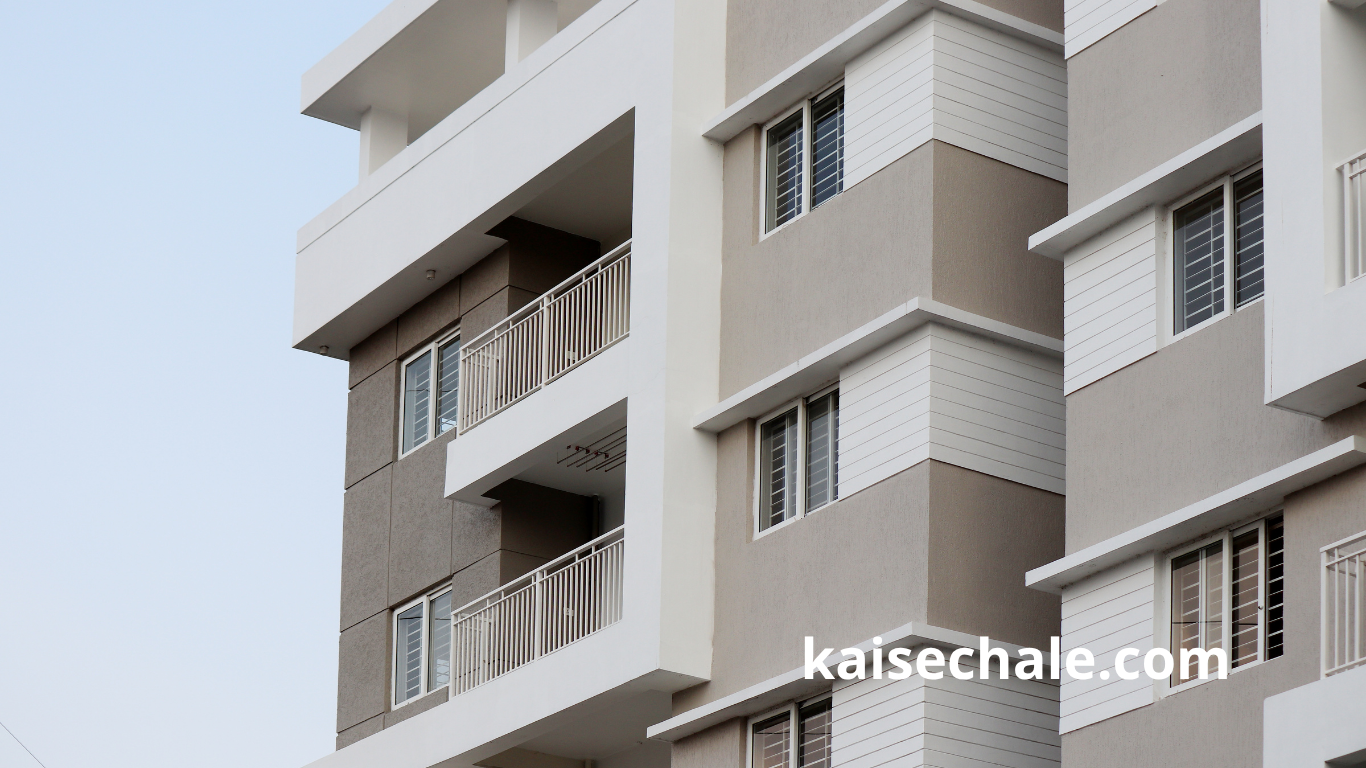
Hindi:#कॉलोनी_वैध_या_अवैध #अवैध_कॉलोनी #नक्शा_पास #प्रॉपर्टी_नियम #रियल_एस्टेट_टिप्स #कानूनी_जानकारी #रेरा #विकास_प्राधिकरण#LegalColony #IllegalColony #MapApproval #PropertyRules #RealEstateTips #LegalInformation #RERA #DevelopmentAuthority
हिंदी आर्टिकल
भूमिका
भारत के शहरीकरण के साथ-साथ अवैध कॉलोनियों की संख्या भी तेजी से बढ़ी है। आम नागरिकों के लिए यह जानना बेहद जरूरी है कि जिस कॉलोनी में वे प्लॉट या मकान खरीद रहे हैं, वह वैध है या अवैध। साथ ही, अगर प्लॉट अवैध कॉलोनी में है तो क्या उसका नक्शा पास हो सकता है? इस लेख में इन्हीं सवालों के जवाब विस्तार से दिए गए हैं।
कॉलोनी वैध या अवैध कैसे पहचानें?
1. वैध कॉलोनी की पहचान
-
स्वीकृत लेआउट प्लान: कॉलोनी का लेआउट स्थानीय विकास प्राधिकरण (जैसे LDA, GDA, HUDA आदि) से स्वीकृत होना चाहिए।
-
अनुज्ञा पत्र/परमिट लेटर: विकास प्राधिकरण द्वारा जारी किया गया परमिट लेटर या अनुज्ञा पत्र होना चाहिए, जिसमें कॉलोनी के स्वीकृत मानक, क्षेत्रफल, सड़क, पार्क, स्कूल आदि का उल्लेख हो।
-
रेरा रजिस्ट्रेशन: प्रोजेक्ट का रेरा (RERA) में पंजीकरण होना चाहिए। केवल कंपनी का नहीं, बल्कि प्रोजेक्ट का रजिस्ट्रेशन अनिवार्य है।
-
सड़क की चौड़ाई: कॉलोनी की आंतरिक सड़कें कम-से-कम 9 मीटर (30 फुट) चौड़ी होनी चाहिए।
-
ग्रीन एरिया और सुविधाएं: पार्क, स्कूल, सामुदायिक केंद्र जैसी सुविधाओं के लिए भूखंड नियोजित और छोड़े गए हों।
-
कागजों की जांच: बिल्डर से उपरोक्त सभी दस्तावेजों की फोटोकॉपी मांगें और विकास प्राधिकरण में जाकर उनकी सत्यता की पुष्टि करें।
2. अवैध कॉलोनी की पहचान
-
लेआउट अप्रूवल नहीं: कॉलोनी का लेआउट प्राधिकरण से स्वीकृत नहीं है।
-
परमिट या रेरा रजिस्ट्रेशन नहीं: बिल्डर के पास परमिट लेटर या रेरा रजिस्ट्रेशन नहीं है।
-
सड़कें संकरी: आंतरिक सड़कें 9 मीटर से कम चौड़ी हैं।
-
सुविधाओं की कमी: पार्क, स्कूल, सामुदायिक केंद्र आदि का अभाव।
-
कागजों में गड़बड़ी: बिल्डर कागज दिखाने से बचता है या फर्जी कागज देता है।
-
सरकारी जमीन का अतिक्रमण: कई बार सरकारी जमीन (तालाब, चरागाह, चकरोड) को भी प्लॉटिंग में शामिल कर लिया जाता है।
अवैध कॉलोनी में प्लॉट है तो नक्शा कैसे पास होगा?
1. नक्शा पास कराने की कानूनी स्थिति
-
लेआउट अप्रूवल जरूरी: जब तक कॉलोनी का लेआउट प्राधिकरण से स्वीकृत नहीं होता, तब तक किसी भी व्यक्तिगत प्लॉट का नक्शा पास नहीं हो सकता।
-
सड़क की मिल्कियत: अवैध कॉलोनी में सड़कें अक्सर बिल्डर या किसी व्यक्ति के नाम रहती हैं, न कि सरकार के नाम। ऐसे में सरकार उसे सार्वजनिक सड़क नहीं मानती और नक्शा पास नहीं करती।
-
रेगुलराइजेशन की प्रक्रिया: कुछ राज्यों में सरकार ने कट-ऑफ डेट तक बनी कॉलोनियों को रेगुलराइज करने के लिए गाइडलाइन जारी की थी, लेकिन अधिकांश कॉलोनियां अभी भी नियमित नहीं हो पाई हैं।
-
इंडिविजुअल नक्शा असंभव: जब तक कॉलोनी रेगुलराइज नहीं होती, तब तक व्यक्तिगत भूखंड का नक्शा पास नहीं हो सकता। ऐसे मकान या प्लॉट अवैध माने जाते हैं और कभी भी ध्वस्त किए जा सकते हैं।
2. क्या कोई रास्ता है?
-
सरकारी रेगुलराइजेशन: यदि सरकार कॉलोनी को रेगुलराइज कर देती है, तो विकास शुल्क जमा कर नक्शा पास कराया जा सकता है।
-
नियमितीकरण के लिए आवेदन: कॉलोनी के सभी भूखंड मालिक मिलकर विकास प्राधिकरण में आवेदन कर सकते हैं, लेकिन इसमें समय और प्रक्रिया जटिल है।
-
फर्जी वादों से बचें: कई बिल्डर गलत जानकारी देकर नक्शा पास कराने का वादा करते हैं, इनसे सावधान रहें।
अवैध कॉलोनी में प्लॉट खरीदने के खतरे
-
कानूनी कार्रवाई: सरकार कभी भी अवैध कॉलोनी को ध्वस्त कर सकती है।
-
बिजली-पानी की समस्या: बिना नक्शा पास हुए बिजली, पानी, सीवर जैसी सुविधाएं नहीं मिलतीं।
-
रजिस्ट्रेशन में दिक्कत: प्रॉपर्टी का रजिस्ट्रेशन और ट्रांसफर मुश्किल हो जाता है।
-
ऋण नहीं मिलता: बैंक या वित्तीय संस्थान ऐसे प्लॉट पर लोन नहीं देते।
-
भविष्य में विवाद: सरकारी जमीन या अन्य विवादों में फंसने का खतरा रहता है।
वैध कॉलोनी में प्लॉट खरीदने के फायदे
-
कानूनी सुरक्षा: प्रॉपर्टी पर पूरा अधिकार और सुरक्षा मिलती है।
-
सुविधाएं: बिजली, पानी, सीवर, सड़क, पार्क आदि की सुविधा।
-
रजिस्ट्रेशन और लोन: आसानी से रजिस्ट्रेशन और बैंक लोन मिल जाता है।
-
भविष्य में मूल्य वृद्धि: वैध कॉलोनी में प्रॉपर्टी की कीमत स्थिर और बढ़ती रहती है।
प्रॉपर्टी खरीदते समय ध्यान रखने योग्य बातें
-
सभी दस्तावेजों की जांच करें।
-
विकास प्राधिकरण से सत्यापन कराएं।
-
बिल्डर से रेरा रजिस्ट्रेशन नंबर मांगें।
-
किसी भी फर्जी वादे या दबाव में आकर खरीदारी न करें।
-
कानूनी सलाहकार से राय लें।
निष्कर्ष
कॉलोनी की वैधता की जांच करना हर खरीदार का अधिकार और जिम्मेदारी है। अवैध कॉलोनी में प्लॉट खरीदना भविष्य में भारी नुकसान और कानूनी परेशानी का कारण बन सकता है। हमेशा पूरी जांच-पड़ताल और सरकारी नियमों का पालन करते हुए ही प्रॉपर्टी खरीदें।
English Article
Introduction
With rapid urbanization in India, the number of illegal colonies has also increased. It is crucial for every citizen to know whether the colony where they are buying a plot or house is legal or illegal. Also, if a plot is in an illegal colony, is it possible to get the building plan approved? This article answers these questions in detail.
How to Identify if a Colony is Legal or Illegal?
1. Identifying a Legal Colony
-
Approved Layout Plan: The colony’s layout must be approved by the local development authority (like LDA, GDA, HUDA, etc.).
-
Permit Letter/Approval Certificate: There should be a permit letter or approval certificate from the authority, mentioning the standards, area, roads, parks, schools, etc.
-
RERA Registration: The project must be registered with RERA. Not just the company, but the specific project registration is mandatory.
-
Road Width: Internal roads should be at least 9 meters (30 feet) wide.
-
Green Area and Facilities: Plots must be reserved for parks, schools, and community centers.
-
Document Verification: Ask the builder for copies of all these documents and verify them at the development authority office.
2. Identifying an Illegal Colony
-
No Layout Approval: The colony’s layout is not approved by the authority.
-
No Permit or RERA Registration: The builder does not have a permit letter or RERA registration.
-
Narrow Roads: Internal roads are less than 9 meters wide.
-
Lack of Facilities: Absence of parks, schools, community centers, etc.
-
Document Issues: The builder avoids showing documents or provides fake ones.
-
Encroachment on Government Land: Sometimes, government land (ponds, grazing land, public paths) is included in the plotting.
If the Plot is in an Illegal Colony, How Can the Map be Approved?
1. Legal Status of Map Approval
-
Layout Approval is Essential: Until the colony’s layout is approved by the authority, no individual plot’s map can be approved.
-
Ownership of Roads: In illegal colonies, roads often remain in the name of the builder or an individual, not the government. The government does not recognize such roads as public, so map approval is denied.
-
Regularization Process: Some states have issued guidelines to regularize colonies built up to a certain cut-off date, but most colonies are still not regularized.
-
Individual Map Approval Impossible: Until the colony is regularized, individual plot map approval is not possible. Such houses or plots are considered illegal and can be demolished at any time.
2. Is There Any Way Out?
-
Government Regularization: If the government regularizes the colony, you can pay the development fee and get the map approved.
-
Application for Regularization: All plot owners in the colony can jointly apply to the development authority, but the process is lengthy and complex.
-
Beware of False Promises: Many builders make false promises about map approval; beware of such claims.
Risks of Buying a Plot in an Illegal Colony
-
Legal Action: The government can demolish the illegal colony at any time.
-
Utility Issues: No electricity, water, or sewerage facilities without map approval.
-
Registration Problems: Property registration and transfer become difficult.
-
No Loans: Banks or financial institutions do not provide loans on such plots.
-
Future Disputes: Risk of getting entangled in government land or other disputes.
Benefits of Buying in a Legal Colony
-
Legal Security: Full rights and legal protection on the property.
-
Facilities: Access to electricity, water, sewerage, roads, parks, etc.
-
Easy Registration and Loan: Easy property registration and bank loan availability.
-
Value Appreciation: Property value remains stable and increases over time.
Things to Keep in Mind While Buying Property
-
Check all documents thoroughly.
-
Verify with the development authority.
-
Ask the builder for the RERA registration number.
-
Do not buy under pressure or false promises.
-
Consult a legal advisor.
Conclusion
It is every buyer’s right and responsibility to check the legality of the colony. Buying a plot in an illegal colony can lead to huge losses and legal troubles in the future. Always conduct thorough verification and follow government rules before purchasing any property.







